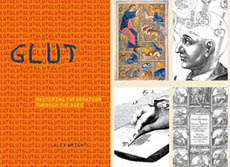Words Of My Perfect Teacher
June 16, 2004
Last night I went to a screening of Words Of My Perfect Teacher, a new documentary about Dzongsar Khyentse Rinpoche, the Tibetan lama-cum-filmmaker who wrote and directed The Cup and the forthcoming Travellers and Magicians.
Filmmaker Lesley Ann Patten presents Khyentse Rinpoche as a study in cultural paradox: a high lama who grew up in a strict Bhutanese monastery, went on to study filmmaking with Bernardo Bertolucci, begin teaching Western students, and now manages to straddle both cultures. He carries a cellphone, loves watching sports on TV, gives vajra empowerments and mass blessings to adoring throngs in Bhutan. Early in the film, we get a revealing glimpse of how that paradox manifests in Rinpoche's own mind: "Sometimes I hate my job," he says, bemoaning the hypocrisy and "cultural hangups" he encounters, especially among Western students. "Sometimes I wish I could just have a normal life."
But of course Rinpoche's life is anything but normal. The filmmakers follow him and a group of students as he hops around the globe from London to Munich to Bhutan, scouting film locations, conferring blessings, peeling vegetables, and going to a soccer game. For his students, everything Rinpoche does turns out to be some kind of teaching.
En route to a World Cup match between England and Germany in Munich, Rinpoche declares: "I want to see the hooligans." Sure enough, he leads his students through the subway in search of a crowd of riled-up British drunks. Wandering among the belligerent yobs, he gives a powerful implied teaching, as we see how his own playful love of the game contrasts with the deluded aggression of the fans. Rinpoche turns hooliganism into a metaphor for the human condition, showing how we can take something inherently fun like a soccer game, imbue it with false significance, and become attached - ultimately turning the pleasurable thing into a vehicle of desire, aggression and stupor. Yet Rinpoche doesn't shy away from the hooligans, or condemn them, or retreat to his mountain cave. Buddhists say that just as the lotus can bloom only in dirty water, so enlightenment arises from the muddied dimensions of our own confusion.
The film turns out to be as much about the students' experience as it is about Rinpoche himself; not so much a biopic as a meditation on the teacher-student relationship. For the filmmakers, Rinpoche turns out to be unwieldy prey: he is forever eluding them, appearing and disappearing unexpectedly, undermining their expectations, and resisting every attempt to turn him into an icon. If there's a central theme at work in this film, it's that the teacher is not some reified being, he is really just a reflection, as elusive as our own minds.
As I walked in the front door of the theater before the screening, who should I encounter standing in the foyer but Rinpoche himself, chatting with a few audience members. He happened to glance in my direction, catching my eye for a half-second that felt like a lifetime. It was one of those moments that you can't really hope to describe. The best I can offer is a simile: imagine you lived in a pre-Venetian age, before they had mirrors, and that you were walking by a pool of water, and suddenly caught a glimpse of yourself. You would probably be startled, intrigued, maybe a little scared, and perhaps feel like you had just learned something new about yourself. It's something like that.
File under: Dharma
_____________________« Salon on social networking | Scirus »
GLUT:
Mastering Information Through the Ages
New Paperback Edition
“A penetrating and highly entertaining meditation on the information age and its historical roots.”
—Los Angeles Times
